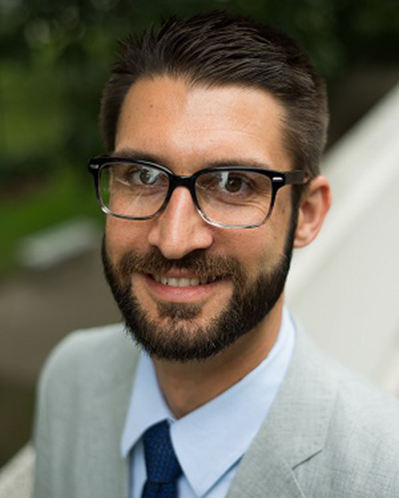
Silas Allard is Associate Director and Harold J. Berman Fellow in Law and Religion at the Center for the Study of Law and Religion, as well as Managing Editor for the Journal of Law and Religion. Allard’s research focuses on the ethics of migration policy. Allard is a member of the Advisory Committee of the Georgia Immigration Working Group, facilitator of the Detention Subgroup, and serves on the Board of Directors for the El Refugio hospitality house in Lumpkin, Georgia. Allard earned his Juris Doctor and Master of Theological Studies from Emory University in 2011 and clerked for Chief Judge Donald C. Pogue on the Court of International Trade.
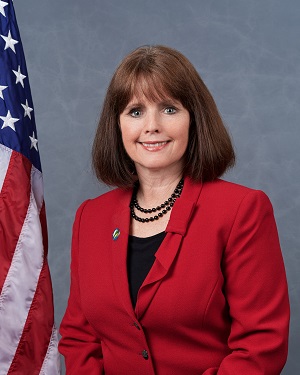
Candace Andersen was first elected to the Contra Costa County Board of Supervisors in June 2012 and was re-elected in 2016. Previously, Candace was on the Danville Town Council from 2003 through June 2012, serving two terms as Mayor. In her role as County Supervisor, Candace currently sits on 24 local and regional boards and commissions. Candace also served on the Morgan Hill City Council in the early 1990's. She is an attorney licensed to practice law in California and Hawaii and began her legal career as a prosecuting attorney in her hometown of Honolulu. She put her legal career on hold to serve the community and raise her family. Candace received both her BA in Public Policy (1982) and Juris Doctorate (1985) from Brigham Young University. Along with her responsibilities on the Board of Supervisors, Candace remains an active volunteer in the community and with The Church of Jesus Christ of Latter-day Saints where she has served in Public Affairs for the past 20 years.
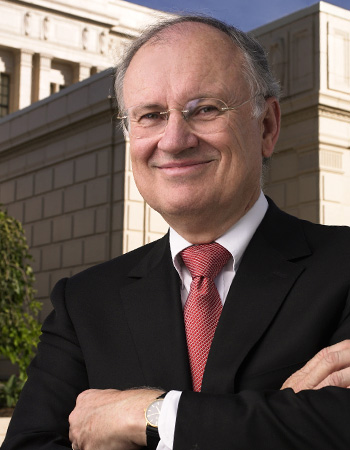
Bill Atkin is generally responsible for the delivery of legal services in connection with the international activities of The Church of Jesus Christ of Latter-day Saints. He holds an LL.M. from Columbia University School of Law (emphasis on international and comparative law) and a J.D. from Arizona State University College of Law. He has practiced law in Moscow, San Francisco, Taipei, Caracas, and Chicago. He has engaged in multinational corporate legal work and U.S. customs matters, rendering advice on the laws of foreign jurisdictions relevant to transnational commercial investment and financial transactions which encompass foreign investment, technology transfers and licensing, labor law, tax, antitrust, financing and banking, customs, secured transactions, corporate, joint ventures, exchange controls and distributorships. He has been Adjunct Professor of Law at Moscow International University; trial attorney, US Department of Justice, Civil Division, New York, and Law Clerk for The Honorable David T. Lewis, then Chief Judge, Tenth Circuit, US Court of Appeals.
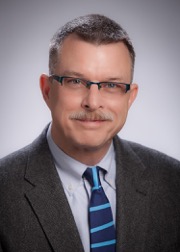
Stanley Carlson-Thies is founder and senior director of the Institutional Religious Freedom Alliance, which promotes the religious freedoms that enable faith-based organizations to make their uncommon contributions to the common good. IRFA is a division of the Center for Public Justice, an independent, nonpartisan organization devoted to policy research and civic education. Carlson-Thies is the co-author of Free to Serve: Preserving the Religious Freedom of Faith-Based Organizations (2015), and The Freedom of Faith-Based Organizations to Staff on a Religious Basis (2004). He served on the initial staff of President Bush’s White House faith-based office (2001-2002) and in 2009-2010 served on the church-state taskforce of President Obama’s faith-based Advisory Council. He has advised federal departments and states on how to construct productive and respectful relationships with faith-based and secular community organizations. Since 2002, he is the organizer and host of a monthly nonpartisan and multi-faith gathering of religious freedom advocates and leaders of faith-based organizations, the Coalition to Preserve Religious Freedom, which monitors and educates Congress and the executive branch. He holds a PhD in political science from the University of Toronto, with a dissertation on Dutch political-religious development.
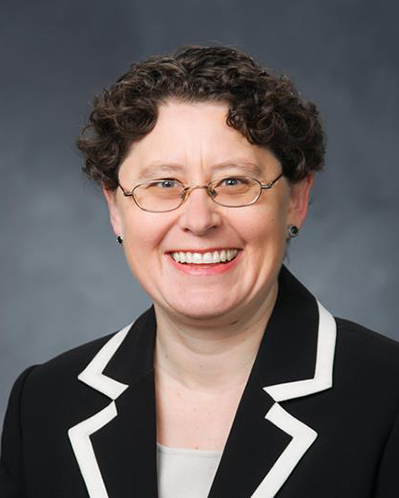
As Associate Director of the International Center for Law and Religion Studies, Elizabeth Clark has co-organized and taken part in dozens of conferences and academic projects with other scholars and with government leaders from around the world. She has from the beginning played a major role in organizing the Annual International Law and Religion Symposium at Brigham Young University. She has taken part in drafting commentaries and legal analyses of pending legislation and developments affecting religious freedom, and drafted amicus briefs on international religious freedom issues for the U.S. Supreme Court. Before joining the Center, Professor Clark was an associate in the Washington, D.C., office of Mayer, Brown & Platt, where she was a member of the Appellate and Supreme Court Litigation Group. Professor Clark also clerked for Judge J. Clifford Wallace on the U.S. Court of Appeals for the Ninth Circuit. Professor Clark graduated summa cum laude from BYU's J. Reuben Clark Law School, where she was Editor-in-Chief of the BYU Law Review. Drawing on her multilingual talents in Russian, Czech, German and French, Professor Clark has been active in writing and lecturing on church-state and comparative law topics. She has taught a variety of classes at the J. Reuben Clark Law School at Brigham Young University. She has published numerous articles and chapters on church-state issues and is the author, with Brett Scharffs, of Religion and Law in the USA, a 2016 contribution to Wolters Kluwer’s International Encyclopaedia of Laws. Professor Clark has also testified before Congress on religious freedom issues.
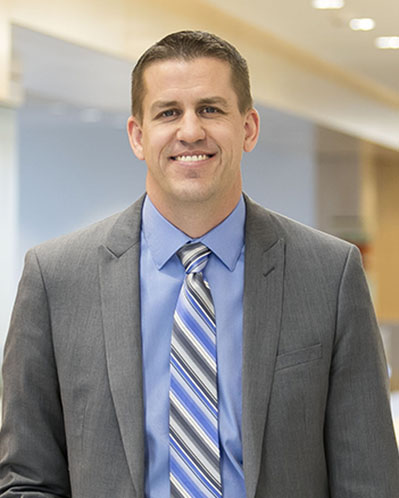
Steven T. Collis is chair of Holland & Hart LLP’s nationwide religious institutions and First Amendment practice group and an equity partner in its complex civil litigation and labor and employment practice groups. In state and federal trial and appellate courts, including the U.S. Supreme Court, he represents religious institutions, government entities, school districts, and traditional employers regarding a broad range of religion-related issues, including those arising under the Religious Freedom Restoration Act (RFRA); the Religious Land Use and Institutionalized Persons Act (RLUIPA); the Free Exercise, Free Speech, and Establishment Clauses of the Federal Constitution; their state analogues; tax exemptions; and other key legal doctrines specific to the intersection of religion and law. He is also an adjunct professor of law at the University of Denver Sturm College of Law, where he teaches religious liberty law. He graduated magna cum laude from the University of Michigan Law School, was a member of the Michigan Law Review, and publishes and speaks regularly on religious freedom for both academic and lay audiences.
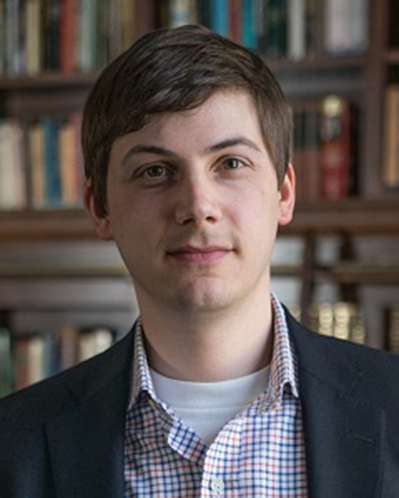
Dr. Daniel Cox, Research Director for Public Religion Research Institute, specializes in survey research, youth politics, and religion. He has coauthored several academic book chapters and journal articles on topics relating to religious polarization, anti-Muslim attitudes in the U.S., religious tolerance of atheists, and the origins of free-market ideology among evangelical Protestants. He regularly writes for major news outlets like FiveThirtyEight, Yahoo! News, and U.S. News & World Report. Dr. Cox holds an M.A. and a Ph.D. in American Government from Georgetown University, as well as a B.A. in Political Science from Union College. Prior to joining PRRI, he served as Research Associate at the Pew Forum on Religion & Public Life, where he worked as part of the core research team. He is an active member of the American Association of Public Opinion Research (AAPOR) and the American Political Science Association (APSA).
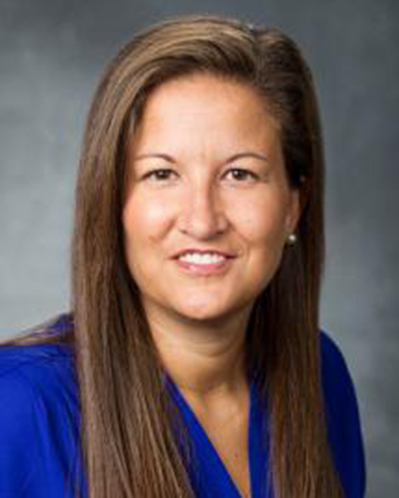
Elizabeth Darger is the associate athletic director/senior woman administrator (SWA) at BYU. She serves as the sport administrator for women’s soccer, men’s and women’s cross country, women’s gymnastics, and men’s and women’s indoor and outdoor track and field. She also oversees human resources, the spirit squads, and serves as the Deputy Title IX Coordinator and on a variety of campus committees including the homecoming committee, as well as on the West Coast Conference Executive Council and WCC Administration and Operations Cabinet. Liz was one of the senior leaders of the NCAA Common Ground initiative. Prior to coming to BYU, she was an assistant coach of the women’s basketball team at Utah Valley University for six years after working as the Timpanogos High School athletic director over girls’ sports for two years. She brings 15 years of coaching experience, as well as a decade of building successful relationships with coaches and student-athletes in the locker room and classroom. At both UVU and Timpanogos, she has helped hundreds of students reach their academic and athletic potential. Liz originally graduated from BYU with a bachelor’s degree in family science in 2000. She earned her master’s degree in school counseling psychology in 2004.
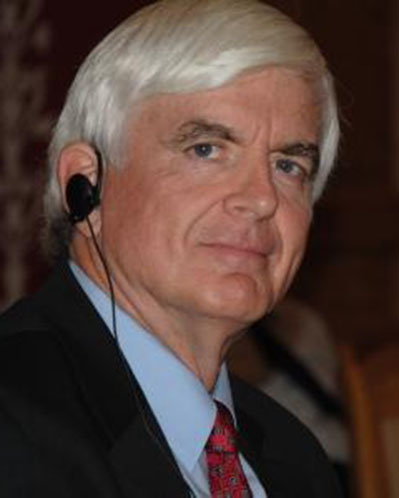
Derek H. Davis, BA, MA, JD, PhD, is a graduate of Baylor University and Baylor Law School and holds a Master of Arts in Church-State Studies from Baylor University and a Doctor of Philosophy in Humanities from the University of Texas at Dallas. He is a former Dean of the College of Humanities and former Dean of the Graduate School at Mary Hardin-Baylor, Belton, Texas. From 1995 to 2006 he was the Director of the J.M. Dawson Institute of Church-State Studies, Baylor University. He now practices law in Waco, Texas. He has received a number of awards, including the Human Rights Achievement Award by Freedom magazine and the Honor of Merit by the International Religious Liberty Association for leadership in advancing religious freedom. He is the author of Original Intent: Chief Justice Rehnquist & the Course of American Church-State Relations (1991 by Prometheus Books), and Religion and the Continental Congress, 1774-1789: Contributions to Original Intent (2000 by Oxford University Press) among numerous other books articles, academic journals, and magazines. He has lectured extensively before academic, public, and religious audiences on a wide range of topics including religious liberty, church-state relations, human rights, ethnic cleansing, the political role of Christianity and other religions, civil religion, nontraditional religions, religious dimensions of the American founding, law and morality, and religion and education.
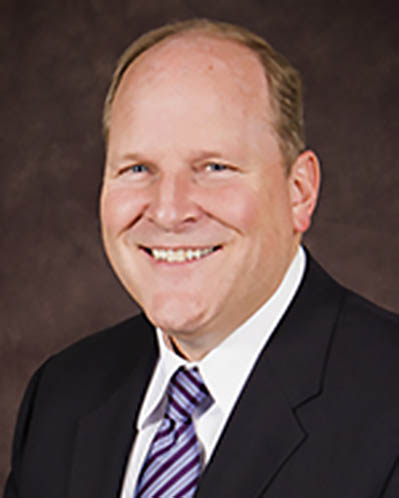
Gary B. Doxey, Associate Director, International Center for Law and Religion Studies, J. Reuben Clark Law School, Brigham Young University, joined the Center in 2005 and serves as regional advisor for Latin America. He also heads the Center’s development effort. He has co-authored several commentaries on draft legislation, and a number of amicus briefs in Latin America. He also teaches in the History Department at Brigham Young University. Professor Doxey’s career has been divided between academia and public service. Prior to joining the law school, he was chief of staff and general counsel to Utah governors Mike Leavitt and Olene Walker and served as deputy commissioner of financial institutions and as associate general counsel to the Utah Legislature. He has a PhD in History from Cambridge University and a JD from Brigham Young University. He speaks or reads several languages and has authored several scholarly publications.
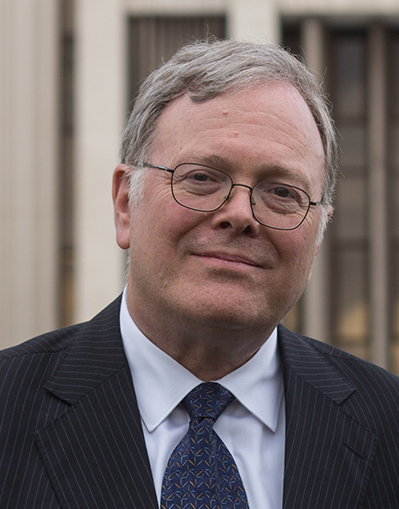
Cole Durham is the immediate past President of the International Consortium for Law and Religion Studies (ICLARS), and Susa Young Gates University Professor of Law and Founding Director of the International Center for Law and Religion Studies (ICLRS), at the J. Reuben Clark Law School of Brigham Young University. He is a graduate of Harvard College and Harvard Law School, where he was a Note Editor of the Harvard Law Review and Managing Editor of the Harvard International Law Journal. He has been heavily involved in comparative law scholarship, with a special emphasis on comparative constitutional law. He is a founding Editor-in-Chief of the Oxford Journal of Law and Religion. He served as the Secretary of the American Society of Comparative Law from 1989 to 1994. He is an Associate Member of the International Academy of Comparative Law. He served as a General Rapporteur for the topic 'Religion and the Secular State' at the 18th Congress of the International Academy of Comparative Law, held in July 2010. He served in earlier years as Chair both of the Comparative Law Section and the Law and Religion Section of the American Association of Law Schools.
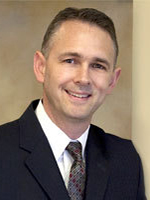
Alexander Dushku is a shareholder and member of the board of directors of the Salt Lake City law firm of Kirton McConkie. He graduated summa cum laude from Brigham Young University in 1990 and magna cum laude from the J. Reuben Clark law school at BYU in 1993. After law school, Alexander practiced law in California for two years and then clerked on the Seventh Circuit Court of Appeals for the Honorable Judge Daniel A. Manion. In 1996, following his clerkship, Alexander joined Kirton McConkie, where he is a member of the firm’s constitutional and appellate law section, specializing in appellate brief writing and critical law and motion practice. He has authored numerous briefs in important religious liberty cases before appellate courts across the United States, including in the United States Supreme Court, and has consulted with legislators and advocates across the country on religious liberty issues. Much of his legal work is for The Church of Jesus Christ of Latter-day Saints in cases involving complex issues of First Amendment law. Alexander is past president of the Constitutional Law Section of the Utah State Bar and is listed as one of Utah’s "Legal Elite" by Utah Business Magazine and as a Mountain States Super Lawyer.
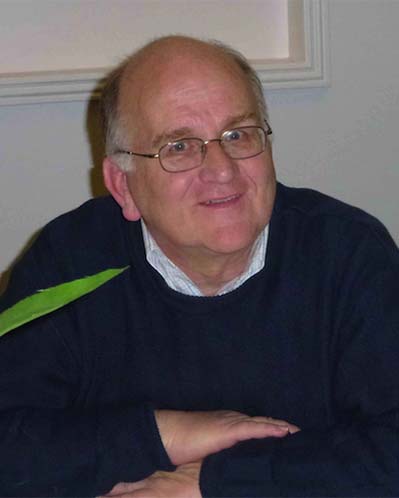
Brian L. Farr, JD is the Chair of the North American Interfaith Network, global Chair of the Rotary Action Group for Peace (an affiliate of Rotary International), Peace Committee Chair of the Salt Lake Interfaith Roundtable, and board member of the Norman and Barbara Tanner Center for Non-Violent Human Rights Advocacy at the University of Utah. He is a Richard L. Evans Fellow, Office of Religious Outreach, Brigham Young University, a Rotary Peace Fellow, member of the Interreligious Engagement Advisory Council at Utah Valley University, and past President of the Utah Council for Citizen Diplomacy (a nonprofit organization that hosts US State Department visitors under the International Visitor Leadership Program). Brian practiced law in both the public and private sectors for nearly forty years including service as Chief Legal Counsel and Deputy Chief of Policy to the Governor of the State of Utah and ten years as a Division Chief in the Utah Attorney General’s Office.
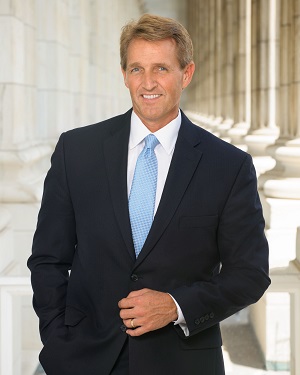
Senator Jeff Flake is a fifth-generation Arizonan who was raised on a cattle ranch in Snowflake, Arizona, named in part for Senator Flake's great-great grandfather. Prior to his election to the U.S. Senate, Jeff served in the U.S. House of Representatives from 2001-2013 representing the East Valley. As a member of the U.S. Senate, Jeff sits on the Judiciary Committee where he also serves as chairman of the Subcommittee on Privacy, Technology and the Law; the Energy and Natural Resources Committee where he also serves as chairman of the Subcommittee on Water and Power; and the Foreign Relations Committee where he also serves as chairman of Subcommittee on African Affairs. After serving a Mormon mission in southern Africa, Jeff graduated from Brigham Young University, where he received a BA in International Relations and an MA in Political Science. In 1987, he started his career at a Washington, D.C. public affairs firm, but soon returned to Africa as Executive Director of the Foundation for Democracy in Namibia. In this role, he helped monitor Namibia's independence process and saw that nation usher in freedom and democracy. In 1992 Jeff and his family moved back to Arizona where he was named Executive Director of the Goldwater Institute. In this role, he worked to promote a conservative philosophy of less government, more freedom, and individual responsibility.
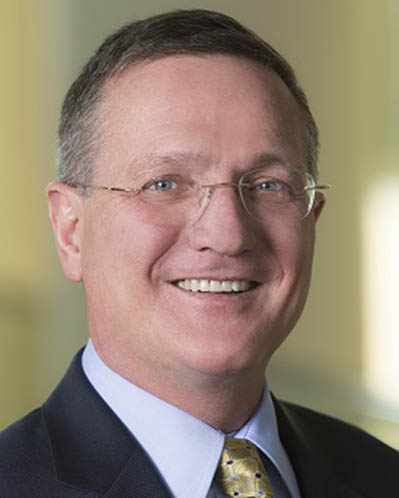
Brian J. Grim, Ph. D., is the founder and president of the Annapolis, Maryland-based Religious Freedom & Business Foundation, and a leading expert on international religious demography and the socio-economic impact of restrictions on religious freedom. Brian’s recent widely covered research finds that religion contributed $1.2 trillion to the U.S. economy annually, 50% more than America’s six largest oil companies, and has a higher value than the combined revenues of the top 10 technology companies in the US, including Apple, Amazon and Google. Brian holds a visiting professorship at St. Mary’s University in London and also works closely with the United Nations “Business for Peace” platform. Brian is recent chair of the World Economic Forum’s council on the role of faith. He is an associate scholar at the Religious Liberty Project at Georgetown University and an affiliated scholar at Boston University’s Institute on Culture, Religion & World Affairs. His doctorate is in sociology from the Pennsylvania State University and he is author of numerous articles and books including The Price of Freedom Denied (Cambridge), The World Religion Database (Brill), The World’s Religions in Figures (Wiley) and The Yearbook of International Religious Demography (Brill).
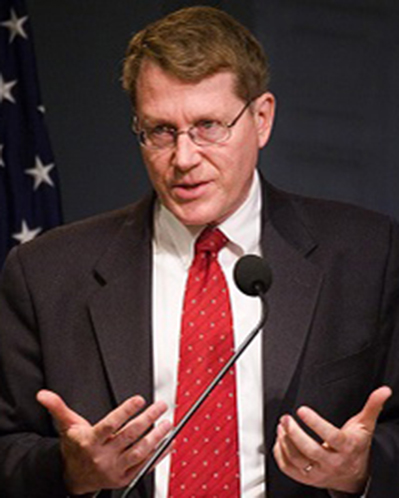
Kent Hill joined the RFI in September 2016 as Executive Director and Director of the Middle East Action team after six years as Senior Vice President at World Vision, one of the largest faith-based relief and development organizations in the world. He also served as Vice President of the John Templeton Foundation for two years, eight years as Assistant Administrator for the U.S. Agency for International Development (USAID), responsible for U.S. foreign assistance to Eastern Europe and the former Soviet Union, and, subsequently, for all USAID health programs worldwide. Kent was briefly Acting USAID Administrator early in the Obama Administration. Earlier in his career, Dr. Hill was President of Eastern Nazarene College (Quincy, MA) for nine years, President of D.C.'s Institute on Religion and Democracy for six years, and Associate Professor of History at Seattle Pacific University. His PhD is from the University of Washington and he has published a book on religion in the Soviet Union.
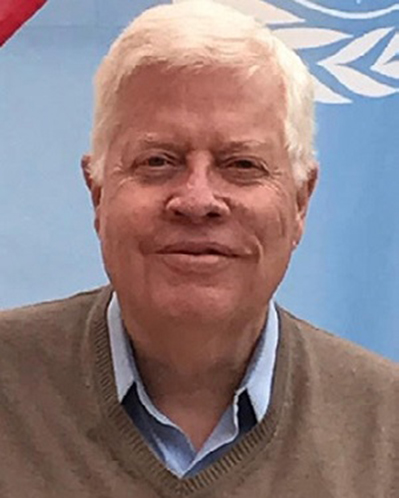
Originally from Boise, Idaho, Don interrupted university study for volunteer service work in Brazil as a young man. After completing his undergraduate degree, Don completed two master’s degrees at the University of Wisconsin before moving on to California and doctoral studies at Stanford in International Development Education (Sociology of Education). Following graduation and an academic appointment at the University of Chicago, Don and his wife began a long and peripatetic career in the study and practice of international development with assignments around the world, from Indonesia to Ethiopia and Egypt to New Zealand. In addition to university positions, Don was principal education specialist for the World Bank, based in Washington, DC, after which he served as the Director of BYU’s Kennedy Center for International Studies and Professor of International Development Studies. From 2011 to 2013, Don and his wife, Ellen, were Government Relations Representatives to the UN in Geneva for the Kennedy Center NGO. Currently, they are the co-directors of BYU’s new Geneva Office for Human Rights Education, where they have been asked to develop (a program for spreading the message of human rights to the children and youth of the world.)
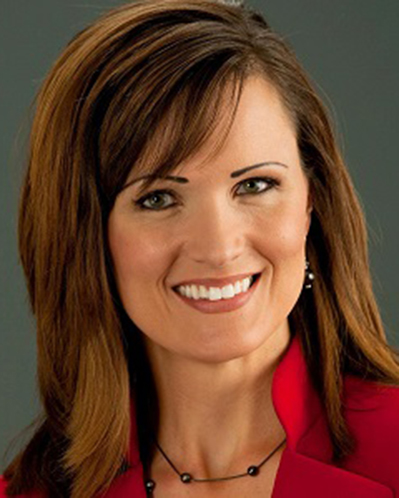
Ally Isom knows words have power, so she helps people feel the power of The Word. Ally is director of Institutional Messaging for the LDS Church, with responsibilities for integrated communications and global brand strategy. Her previous Public Affairs portfolio included women’s outreach, addressing the vestiges of racial folklore, and supporting leaders and managing the team who developed mormonandgay.lds.org. With a background in communications, policy and politics, Ally was deputy chief of staff, communications director and spokesperson for Utah’s governor, a state agency administrator and a legislative liaison. Ally graduated from BYU-Provo and started in politics by running political campaigns.
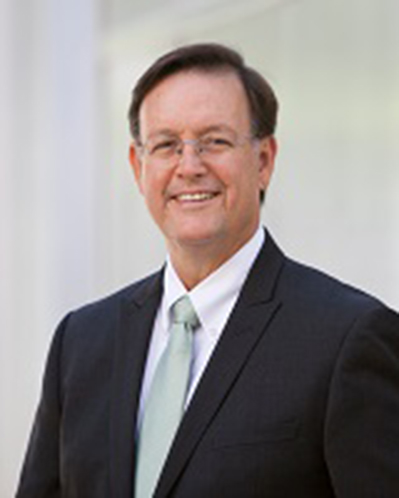
Dr. John Jackson has served as the president of William Jessup University (WJU) since 2011 where enrollment has almost tripled during his tenure. The university has also increased its budget from $17 million in 2011 to over $43 million in 2016, and has added multiple degrees in science and arts, graduate programs, and online degrees. Dr. Jackson earned both his PhD and MA in Educational Administration and Organizational Studies, from the University of California, Santa Barbara; an MA in Theology (Christian Formation and Discipleship) at Fuller Theological Seminary; and a BA in Religion (Christian History and Thought) from Chapman University. His strong background in executive and organizational leadership has given him the opportunity to come alongside church and business leaders throughout the nation to leverage their organizational leadership and communications skills. He has spoken in national and global settings, taught and lectured in undergraduate and graduate classes and is an author of six books on leadership, cultural transformation and spiritual formation.
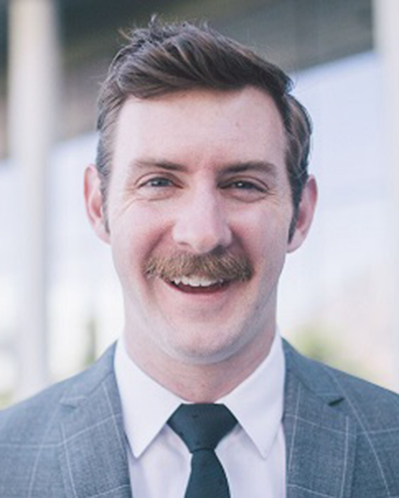
Addison D. Jenkins, a student at BYU, is the former president (2015-2017) of USGA - Understanding Same Gender Attraction, a student-run organization that aims to save and improve the lives of LGBTQ/SSA students at Brigham Young University. In his capacity as president, Addison has worked with numerous university administrators, local elected officials, and community leaders to find common ground on making life better for this vulnerable demographic. He has also been interviewed by the Daily Herald, Universe, Deseret News, Salt Lake Tribune, Atlantic, USA Today, and ESPN on the subject of LGBTQ/SSA Mormons and their experiences at BYU. Previously, Addison was the publisher (2013-2015) of the BYU Political Review and has been actively involved in politics at the local, state, and national levels including as a paid, full-time staffer on the Romney campaign in 2012. Currently, Addison is an intern at the Wasatch Front Regional Council while pursuing a degree in Urban Planning and expects to graduate in April 2018.
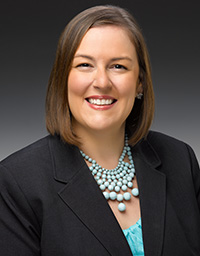
Shapri D. LoMaglio leads the Council for Christian Colleges and Universities’ response to legislative, legal, and regulatory matters on behalf of its 180 institutions of Christ-centered higher education. She advocates on their behalf in Washington, D.C., and equips and encourages member institutions in their own advocacy efforts. She also leads the external relations team of the CCCU, making the case for Christian higher education by promoting its valuable contribution to society-at-large and the important role it plays in the academy. Shapri writes and speaks on issues of religious liberty, higher education, and the interplay between faith and culture. She is a graduate of CCCU member institution Gordon College (Wenham, Mass.) and earned her Juris Doctorate from the University of Arizona (Tucson, Ariz.). She is licensed to practice law in the state of Arizona. Prior to the CCCU, she served as a Legal Fellow in the United States Senate. Shapri serves as a trustee on the Board of Trustees at Gordon College and previously served as the chair of the Board of Directors of the Institutional Religious Freedom Alliance and as a trustee for the Center for Public Justice. She also serves as a deaconess at Grace Meridian Hill Presbyterian Church in Washington, D.C.
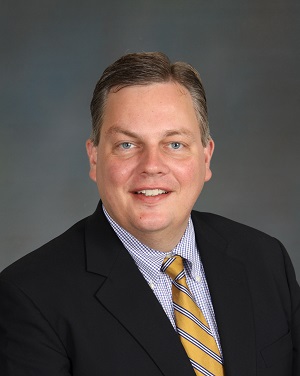
Michael P. Moreland is Professor of Law at Villanova University Charles Widger School of Law. His scholarly interests focus on law and religion, torts, and bioethics. Professor Moreland has held visiting appointments at Princeton University, where he was the Forbes Visiting Fellow in the James Madison Program during 2010-11 and at the University of Notre Dame, where he was a Visiting Professor of Law and the Mary Ann Remick Senior Visiting Fellow in the Center for Ethics and Culture during 2015-17. Professor Moreland received his B.A. in philosophy from the University of Notre Dame, his M.A. and Ph.D. in theological ethics from Boston College, and his J.D. from the University of Michigan Law School. Following law school, Professor Moreland clerked for the Honorable Paul J. Kelly, Jr., of the U.S. Court of Appeals for the Tenth Circuit and was an associate at Williams & Connolly in Washington, D.C. Before joining the Villanova faculty, he served as Associate Director for Domestic Policy at the White House under President George W. Bush from 2005 to 2006.
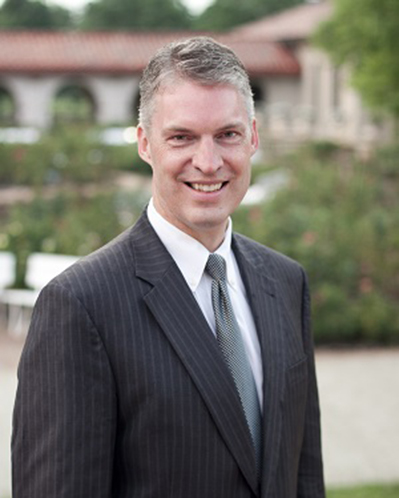
Jeremiah J. Morgan grew up in the Kansas City area as a member of the Reorganized Church of Jesus Christ of Latter-day Saints, now the Community of Christ church. He received his B.S.,magna cum laude, from the University of Central Missouri and his J.D., summa cum laude, from Brigham Young University Law School. After law school, Mr. Morgan clerked for a judge on the U.S. Court of Appeals for the Eighth Circuit and practiced law with the international law firm of Bryan Cave LLC. He served as Deputy Solicitor General for the State of Missouri, arguing numerous cases before the Missouri Supreme Court and many other appellate courts. Mr. Morgan argued cases involving the First Amendment, the Religious Freedom Restoration Act, and many other cases touching on religious freedom. In 2016, he accepted the post as General Counsel to the Supreme Court of Missouri, where he currently serves. Mr. Morgan has served as the international chair for the J. Reuben Clark Law Society and previously served as a full-time missionary for the Church of Jesus Christ of Latter-day Saints in the Micronesian islands, as well as a Bishop and Branch President. He currently serves as a Stake President for the Church.
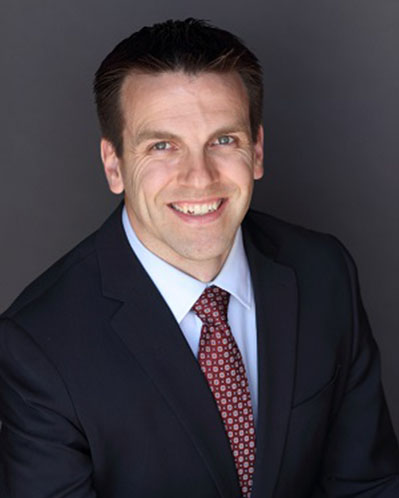
Samuel P. Nielson is an attorney and educator. He worked with an international defense firm before devoting his practice to protecting workers in employment disputes. Sam externed for the Honorable Andrew J. Guilford of the United States District Court for the Central District of California. From 2013 to 2017, Super Lawyers named Sam a “Southern California Rising Star” in Employment Litigation. The National Advocates twice recognized him as one of California’s “Top 40 Under 40” attorneys. In 2013, he received the Wiley W. Manuel Award for Pro Bono Services from the California State Bar, in part based on his efforts to secure asylum for a Coptic Christian fleeing religious persecution. Sam is the International Section Chair for the J. Reuben Clark Law Society’s Employment Law section. He served as Co-chair of the Orange County Bar Association’s Education Committee, overseeing continuing legal education programs for more than 9,000 attorneys. He is a Presidential Fellow at the University of South Carolina where he focuses his research on refugees and religious communities in Western Europe. And his forthcoming book, A More Perfect Union, explores the U.S. Constitution’s impact in everyday life.
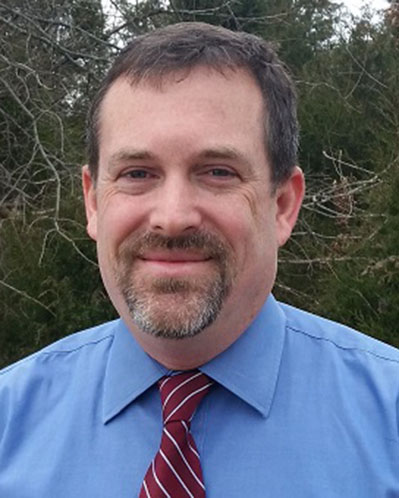
Patrick Reilly founded The Cardinal Newman Society in 1993 and serves as President and CEO. The Newman Society promotes and defends faithful Catholic education and has been a champion of religious freedom for religious educators. Mr. Reilly has authored numerous reports and studies on Catholic education, written articles on Catholic education and other issues for many national publications, and been interviewed by major secular and Catholic media to discuss The Cardinal Newman Society’s work. He is an executive editor of The Newman Guide to Choosing a Catholic College and its companion magazine, My Future, My Faith. He also co-edited Principles of Catholic Identity in Education (2017), Assessing Catholic Identity (2011), The Enduring Nature of the Catholic University (2009), and Newman’s Idea of a University: The American Response (Newman House Press, 2002). Mr. Reilly formerly served as executive director of Citizens for Educational Freedom, higher education analyst for the U.S. House education committee, program analyst for the U.S. Department of Education, and media consultant for the National Conference of Catholic Bishops. A graduate of Fordham University, Mr. Reilly earned a master’s degree in public administration from The American University in Washington, D.C.
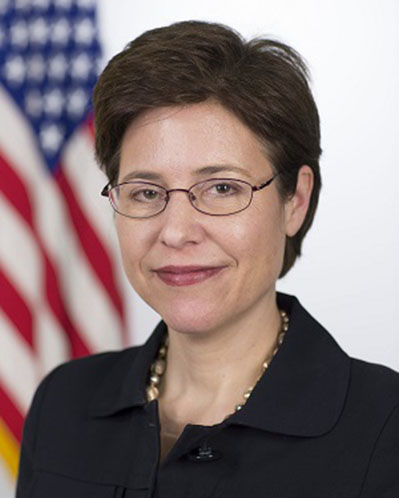
Melissa Rogers is a nonresident senior fellow in Governance Studies at the Brookings Institution. She recently served as special assistant to the president and executive director of the White House Office of Faith-based and Neighborhood Partnerships, during the Obama administration. Melissa previously served as chair of the inaugural Advisory Council on Faith-based and Neighborhood Partnerships. Prior to that, she was director of the Center for Religion and Public Affairs at Wake Forest University Divinity School. She has also served as executive director of the Pew Forum on Religion and Public Life and general counsel of the Baptist Joint Committee for Religious Liberty. Her area of expertise includes the First Amendment's religion clauses, religion in American public life, and the interplay of religion, policy, and politics. Rogers co-authored a case book on religion and law for Baylor University Press, Religious Freedom and the Supreme Court (2008). She holds a JD from University of Pennsylvania Law School and a BA from Baylor University.
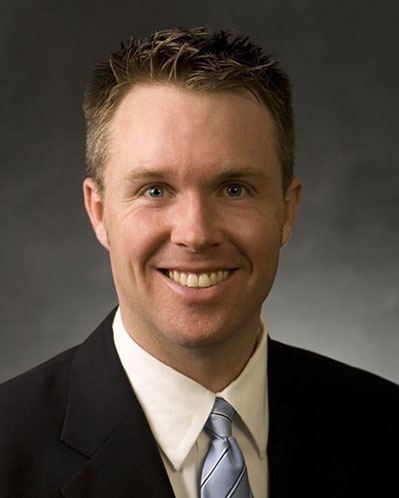
Steve joined the Office of the General Counsel of Brigham Young University in 2006. Steve received a BA in English summa cum laude from Brigham Young University in 1999 and a JD from Columbia Law School in 2003, where he was a Harlan Fiske Stone Scholar and a senior editor of the Columbia Law Review. Prior to working for BYU, he clerked on the United States Court of Appeals for the Ninth Circuit for Judge Andrew J. Kleinfeld in Fairbanks, Alaska and was an associate at Morrison & Foerster, LLP in Irvine, California. Steve is licensed to practice in California, Hawaii, and Utah.
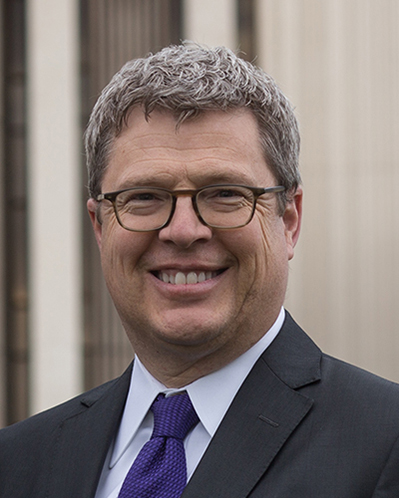
Brett G. Scharffs is Francis R. Kirkham Professor of Law and Director of the International Center for Law and Religion Studies at Brigham Young University Law School. He received a BSBA in international business and an MA in philosophy at Georgetown University and, as a Rhodes Scholar, earned a BPhil in philosophy at Oxford. He received his JD from Yale Law School, where he was senior editor of the Yale Law Journal. He is a recurring visiting professor at Central European University in Budapest and at the University of Adelaide Law School. He has for several years helped organize certificate training programs in religion and the rule of law in China and in Vietnam and has taught and helped organize programs at several Indonesian universities on sharia and human rights. Author of more than 100 articles and book chapters, he has made more than 300 scholarly presentations in 30 countries. His casebook, Law and Religion: National, International and Comparative Perspectives (with Cole Durham, 2nd English edition forthcoming 2017), has been translated into Chinese and Vietnamese, with Turkish, Burmese, and Arabic in process. He is author with Elizabeth Clark of Religion and Law in the USA, a 2016 contribution to Wolters Kluwer’s International Encyclopaedia of Laws.
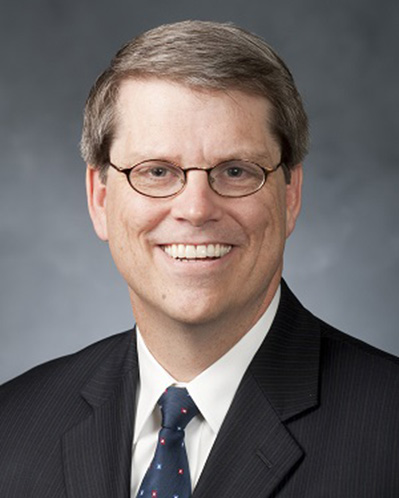
Dean Smith is a leading figure in the field of law and entrepreneurship and has done foundational work on fiduciary theory. He has also made important contributions to the academic literature on corporate governance and transactional lawyering. During his five years as the Associate Dean of Faculty and Curriculum (2009-14), BYU Law School developed a large number of new course offerings, including a Law and Entrepreneurship Clinic. He has taught at six law schools in the U.S., as well as law programs in Australia, China, England, Finland, France, Germany, and Hong Kong. Before entering academe, Dean Smith clerked for Judge W. Eugene Davis in the United States Court of Appeals for the Fifth Circuit and was an associate in the Delaware office of the international law firm Skadden, Arps, Slate, Meagher & Flom. He has been the Dean of the J. Reuben Clark Law School at Brigham Young University since 2016.
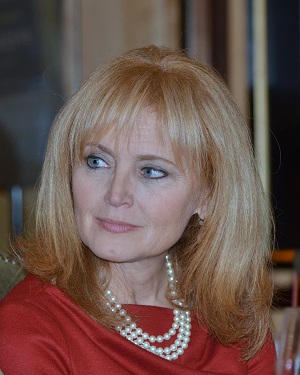
Dr. Katrina Lantos Swett serves as President of the Lantos Foundation for Human Rights and Justice, established in 2008 to continue the legacy of her father, the late Congressman Tom Lantos, who served as Chairman of the House Foreign Affairs Committee and was the only Holocaust survivor ever elected to the US Congress. Congressman Lantos was the founder of the Congressional Human Rights Caucus and was widely acknowledged as one of our nation’s most eloquent and forceful leaders on behalf of human rights and justice. Under her leadership, The Lantos Foundation has rapidly become a distinguished and respected voice on key human rights concerns ranging from advancing rule of law globally and fighting for Internet freedom in closed societies to combatting the persistent and growing threat of anti-Semitism and Holocaust denial. Dr. Lantos Swett is the former Chair and Vice-Chair of the United States Commission on International Religious Freedom (USCIRF) and teaches Human Rights and American Foreign Policy at Tufts University. She currently serves as Co-Chair of the Board of the Committee for Human Rights in North Korea (HRNK) and the Budapest based Tom Lantos Institute. Dr. Lantos Swett also serves on the Advisory Board of UN Watch, the annual Anne Frank Award and Lecture, The Warren B. Rudman Center for Justice, Leadership, and Public Policy, and the Brigham Young University Law School. Lantos Swett earned a Political Science degree from Yale University at the age of 18, a Juris Doctor degree from the University of California, Hastings College of the Law, and a PhD in History from The University of Southern Denmark.
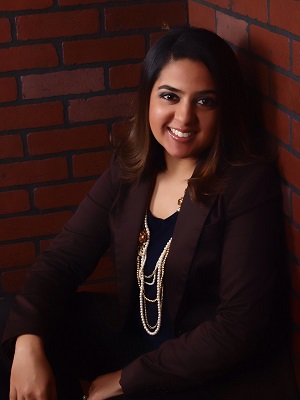
Asma T. Uddin is the director of strategy for the Center for Islam and Religious Freedom (CIRF), a Washington, DC-based non-profit engaging in research, media, education, and advocacy at the intersection of Islam and religious freedom in both the West and Muslim-majority countries. She is also the founder and editor-in-chief of altmuslimah.com and a research fellow at Georgetown University's Berkley Center. Prior to joining CIRF, Uddin served as counsel with Becket Law, a non-profit law firm specializing in religious freedom cases in the United States and abroad. Her scholarly work has been published by numerous law reviews and prominent university presses. She also serves on the OSCE/ODIHR Panel of Experts on Freedom of Religion or Belief and the advisory council for the Institute for Global Engagement's Center for Women, Faith & Leadership. Uddin is a graduate of the University of Chicago Law School, where she was a staff editor at the University of Chicago Law Review.
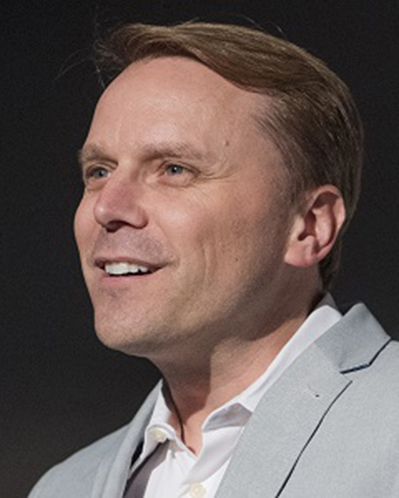
Nathan C. Walker (Ed.M., M.Div., M.A.) is the executive director for the Religious Freedom Center of the Newseum Institute in Washington, DC. Walker is the co-editor with Edwin J. Greenlee of Whose God Rules? Is the United States a Secular Nation or a Theolegal Democracy? (Palgrave Macmillan 2011) and he is currently co-editing with Michael D. Waggoner the Oxford Handbook on Religion and American Education (Oxford University Press 2017). Walker is a contributing author to Religion in American Education: A Legal Encyclopedia, edited by Charles J. Russo (Rowman & Littlefield 2017). Walker coauthored with Lyal S. Sunga, Promoting and Protecting the Universal Right to Freedom of Religion or Belief through Law: Current Dilemmas and Lessons Learned,” published by the International Development Law Organization. This policy report was presented at the United Nations Human Rights Council in Geneva, Switzerland and at the Italian Ministry of Foreign Affairs in Rome. Walker previously served as a resident fellow at Harvard Divinity School where he studied legal restrictions on religious expression. He is currently an advanced doctoral candidate in Law, Education, and Religion at Teachers College Columbia University, where he received his Masters of Arts and Masters of Education degrees in higher education administration.
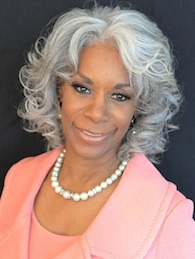
Helen Easterling Williams, EdD, is the dean of Pepperdine University Graduate School of Education and Psychology (GSEP), and previously held the deanship at the School of Education at Azusa Pacific University. While there she established the Emerging Technology Center, developed an international visiting scholar program, and piloted the African American Scholars Program for 11, 12, and 13-year-old African American males. She also served as a professor of doctoral studies in the School of Education. Williams also served as the Senior Assistant Dean of the College of Arts and Sciences at the University of Delaware. Among her numerous successes there is the revitalization of the University’s Parallel Program for freshmen students and development of the Careers in the Arts and Entertainment Program that brought students together with professionals from FUBU, Motown, the Delaware Theater Company, and legendary icons such as Ruby Dee and Ossie Davis. Williams earned her bachelor’s degree from Jersey City State College, a master’s degree from Towson State University in Maryland, and a doctorate of education degree in educational leadership at the University of Delaware. She has written articles and presented on topics such as K-12 education, international education, technology, and technology integration for teacher candidates. She is an American Council on Education Fellow (2004-2005) and a lifetime member of Delta Sigma Theta, Sorority, Inc. She is also an ordained elder in the African Methodist Episcopal Church serving presently at First A.M.E. Church in Los Angeles, California.
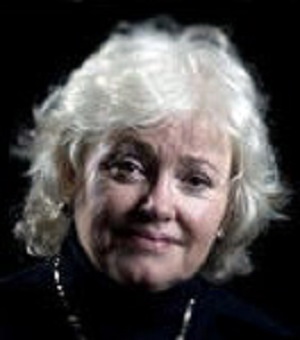
Jane Wise is an Associate Director at the International Center for Law and Religion Studies at Brigham Young University's J. Reuben Clark Law School. She comes most recently from twenty years as an adjunct professor (advocacy faculty) at the Law School, where she served on the legal writing and external relations committees. She taught legal writing, lawyering skills, and law and literature courses in the classroom, as well as legal writing classes online. She developed curricula for the American legal academy including materials for English as a–second-language law students, and the writing curriculum she helped design for BYU Law's Rex E. Lee Advocacy Program was ranked 17th in the nation for legal writing programs in law schools by U.S. News and World Report in 2000, and continues to the present. Wise has edited all print publications at BYU Law School for the past fifteen years, and has been editor of the Clark Memorandum, BYU Law School's alumni magazine published bi-annually, since 2001. She is currently a commentor on Public Radio International and National Public Radio, a featured columnist for Salt Lake Tribune and Utah Valley Magazine, and an essayist for the "Music and the Spoken Word", the Sunday morning radio and television broadcast of the Mormon Tabernacle Choir. Wise holds BA/BFA and JD degrees from the University of Utah. Prior to entering academia she clerked for the Utah Supreme Court and maintained a general practice of law.
